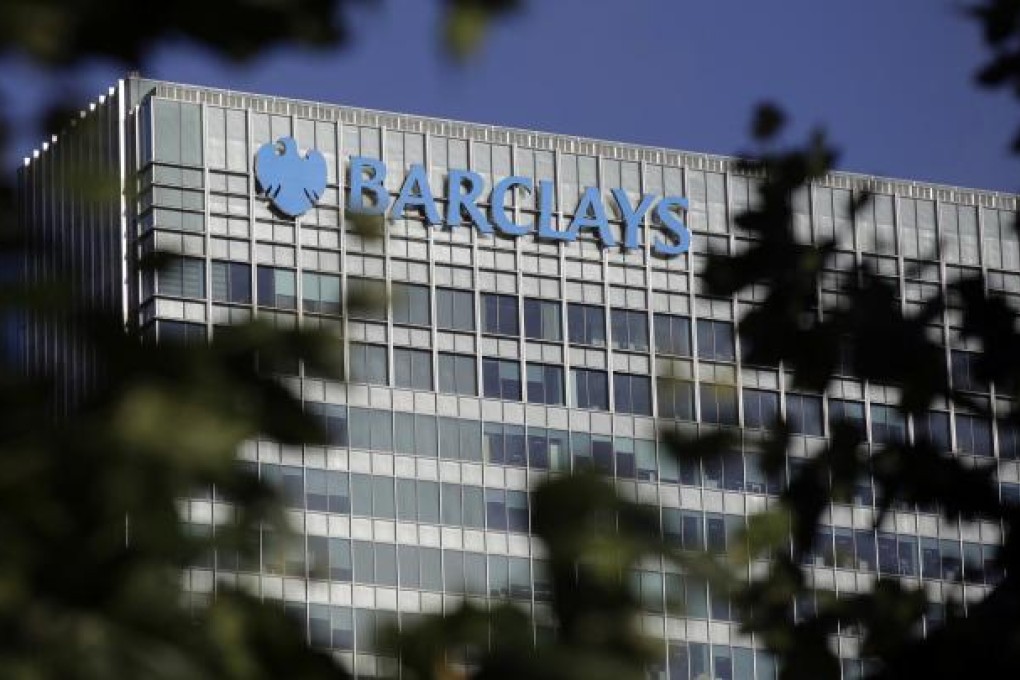Chinese investment institutions remain silent over Libor lawsuits
Investment institutions worry about exposing their dealings if they join rate-setting suits

As lawsuits mount from aggrieved parties in the Libor scandal, one party is keeping tight-lipped: Chinese investment institutions that are wary of revealing too much about their dealings.

In June, Barclays agreed to pay about US$450 million in fines to US and British regulators after admitting its traders tried to toy with the Libor setting. Regulators contended that Barclays submitted artificially low rates to make it look sounder.
China has been aggressively investing overseas since 2007. And powerful Chinese institutions, including the sovereign wealth fund and major banks, are believed to have large exposures to assets related to Libor.
A person close to China Investment Corp, the US$482 billion sovereign wealth fund, said Beijing would take a wait-and-see attitude before deciding whether to do anything such as participating in a class-action suit, where one party sues on behalf of a group sharing the same grievance. He added that the lukewarm response by mainland institutions to the Libor lawsuits reflected the officials' concern that the cases might hurt relationships with some of the world's largest banks and turn an unwelcome spotlight on Chinese investment portfolios.
The investment strategies of CIC and the State Administration of Foreign Exchange, which oversees certain foreign assets, seem "secretive" to the international investment community and lack transparency, say investment bankers and others.